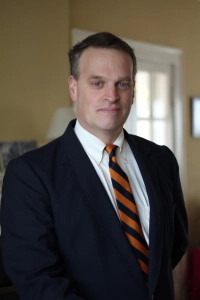There is no doubt about it. Every Catholic School ought to provide an enormous focus on singing Sacred Music.
By providing an enormous focus on singing Sacred Music I mean:
- 1. Every student ought to be required to sing– even students with no vocal chords. Yes, even students with no mouths or lungs or any singing capacity whatsoever! Every Catholic school should in fact have a choir or schola or chorale (or whatever) whose membership is coerced.
I am very hesitant to modify this assertion. Suppose you actually do find a person who is incapable of singing (something which I have only seen once in twenty-five years of teaching), it still seems to me to be the case that such a person benefits enormously by at least sitting in the choir and thereby enlarging his soul.
Giovanni Pierluigi da Palestrina
2. The faculty should to the extent possible sing with the students. The authentic Catholic school is a community of learners which sings together. Singing is in the definition of school. “Schola”= School
This is probably the only time that any school might actually produce something beautiful together as a school.
3. A Catholic School would encourage singing according to the norms set forth by the Church.
This is self evident. But how many Catholic educators really care about what the church says concerning the promotion of sacred music in its schools?
Quick… name three important documents in which the church sets forth her thoughts about sacred music.
So what are the norms concerning sacred music set forth by the church?
Voila! (as set forth by the good folks at the Adoremus Bulletin)
- Tra le Sollecitudini (motu proprio) Pope Saint Pius X
- Divini Cultus (Apostolic Constitution) Pope Pius XI
- Mystici Corporis (Encyclical) Pope Pius XII
- Mediator Dei (Encyclical) Pope Pius XII
- Musicae Sacrae Disciplina (Encyclical) Pope Pius XII
- Instruction on Sacred Music and Sacred Liturgy Congregation for Rites (De musica sacra et sacra liturgia)
- Sacrosanctum Concilium Second Vatican Council (Constitution on the Sacred Liturgy)
- Sacram Liturgiam (Motu Proprio) Pope Paul VI
- Musicam Sacram (Instruction on Music) Congregation for Rites
- General Instruction for the Roman Missal – Pope Paul VI (Text of 4th edition, March 27, 1975)
- Letter to the Bishops on the Minimum Repertoire of Plainchant Congregation for Divine Worship
We should spend some time examining why the Choir is so central to the mission of all Catholic education, but for the moment let us dwell on these extraordinary directives from Sacrosanctum Concilium (from the Second Vatican Council’s Constitution on the Sacred Liturgy.)
“The musical tradition of the universal Church is a treasure of inestimable value, greater even than that of any other art. The main reason for this pre-eminence is that, as sacred song united to the words, it forms a necessary or integral part of the solemn Liturgy.
…Therefore sacred music is to be considered the more holy in proportion as it is more closely connected with the liturgical action, whether it adds delight to prayer, fosters unity of minds, or confers greater solemnity upon the sacred rites. But the Church approves of all forms of true art having the needed qualities, and admits them into Divine Worship.
Accordingly, the Sacred Council, keeping to the norms and precepts of ecclesiastical tradition and discipline, and having regard to the purpose of sacred music, which is the glory of God and the sanctification of the faithful, decrees as follows.
113. Liturgical worship is given a more noble form when the Divine Offices are celebrated solemnly in song, with the assistance of sacred ministers and the active participation of the people.
114. The treasure of sacred music is to be preserved and fostered with great care. Choirs must be diligently promoted, especially in cathedral churches; but bishops and other pastors of souls must be at pains to ensure that, whenever the sacred action is to be celebrated with song, the whole body of the faithful may be able to contribute that active participation which is rightly theirs, as laid down in Art. 28 and 30.
115. Great importance is to be attached to the teaching and practice of music in seminaries, in the novitiates and houses of study of religious of both sexes, and also in other Catholic institutions and schools. To impart this instruction, teachers are to be carefully trained and put in charge of the teaching of sacred music.
It is desirable also to found higher institutes of sacred music whenever this can be done.
Composers and singers, especially boys, must also be given a genuine liturgical training.
116. The Church acknowledges Gregorian chant as specially suited to the Roman Liturgy: therefore, other things being equal, it should be given pride of place in liturgical services.
But other kinds of sacred music, especially polyphony, are by no means excluded from liturgical celebrations, so long as they accord with the spirit of the liturgical action, as laid down in Art. 30.






Wow. Thank you being the first person to enlighten me on what the Church has to say on this topic. Previously, I had no idea.